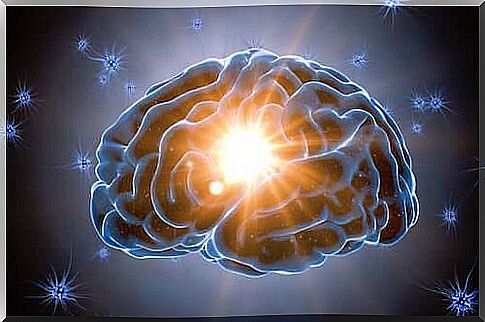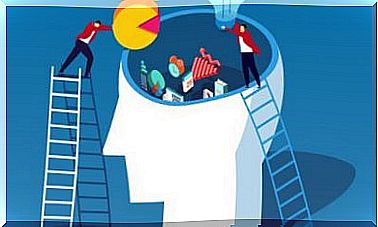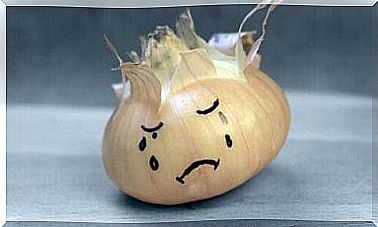The Brain Loves Surprises

Why does the brain like surprises? Surprise is a basic emotion that refers to the alteration of mood due to an unforeseen event or stimulus. When the unexpected isn’t pleasant, it triggers a negative emotion, such as fear, anger, or sadness.
On the other hand, when the result is positive, the resulting emotion is pleasant, triggering an intense activation of the brain areas. These areas of the brain are involved in other emotions, including pleasure.
Therefore, we can say that, in a certain way, physiologically, we have proof that the brain likes surprises.

Brain areas involved
The nucleus accumbens, which is part of the basal ganglia, has an important role in dealing with surprise.
Apparently, it is activated when we are faced with an unpredictable situation. This mostly happens because the brain, subconsciously, expects a reward.
As with other emotions, the amygdala also has an important role in surprise, helping to decide whether what we find is good for us or not. In this region of the brain, there are two groups of differentiated neurons.
- On the one hand, the group of neurons that activate when what is presented to us is a reward
- On the other, the one who activates when you receive something unpleasant. So, being two different sides, one is not activated if the other is activated
The pleasure of the unexpected: the brain loves surprises
As stated above, when the surprise is unpleasant, it acts as a key for the appearance of other emotions. However, when the surprise is not harmful, we find it very pleasant, lengthening and enjoying that emotion for longer.
Many researchers have devoted their efforts to finding out why this is so. And to find out if you can take advantage of the surprise to apply it to a type of intervention. In this sense, some American scientists have shown that the nucleus accumbens is activated intensely when an unexpected stimulus appears.
Interestingly, the nucleus accumbens is a fundamental region of the brain’s pleasure center. Probably, largely because of this, the brain likes surprises. Whether what surprises us is good or bad, this area will light up, activating, even slightly, the mechanisms of pleasure.
A perfect example is the fact that many people like to enter houses of terror, where there are many surprises that should in principle be negative because they are followed by emotions of negative valence, like fear or disgust.

Effect on learning and memory
Learning is one of the most studied cognitive processes in psychology and neuroscience. For more than 50 years, the factors that influence or produce more sustainable learning have been identified. And surprise is part of it.
According to some authors, the force with which one element is associated with another is stronger each time, until it ceases to be surprising. That is, if we present stimulus A next to stimulus B (unpredictable) repeatedly, the person will wait for B to appear with great force. But once you notice that this is still happening, the reaction is much less. In this way, scientists have proposed that when a stimulus is surprising, it is more likely to stay in our memory.
This relationship between learning, brain, and surprise has been proven more recently with neuroimaging studies. In 2001, a group of British and Australian researchers observed what happened in the brain during learning if elements of surprise were included. Thus, they saw how the nucleus accumbens became less and less active as the participant became more familiar with the presentation of the stimuli. However, when a surprise event occurred, it was reactivated with intensity.
It has also been observed in several studies that what is learned around a surprise event stays in memory longer. This could be because the surprise triggers a series of cholinergic and dopaminergic mechanisms that increase attention and motivation.










